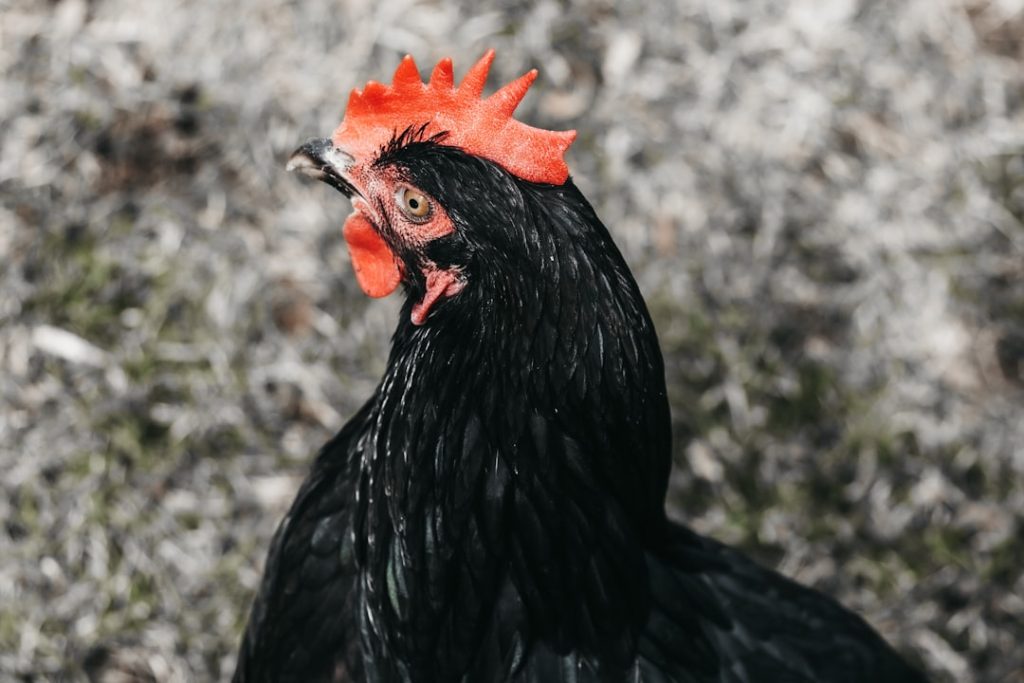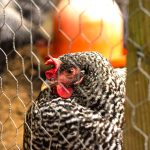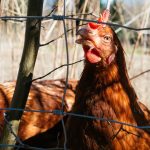When selecting a chicken breed for a backyard flock, several factors should be considered. Climate is a crucial factor, as some breeds are better adapted to cold weather, while others thrive in warmer conditions. The intended purpose of the flock is also important; certain breeds are known for their egg-laying capabilities, while others are valued for meat production.
Temperament is another significant consideration. Docile and friendly breeds are ideal for families with children or other pets, while more active and independent breeds may be better suited for pest control. The available space for the flock is also a key factor, as some breeds are more suitable for confined areas, while others require free-range environments.
By carefully evaluating these factors, including climate adaptability, purpose (egg-laying or meat production), temperament, and space requirements, flock owners can select the most appropriate chicken breed for their specific needs and circumstances.
Table of Contents
- 1 Building a Coop and Run
- 2 Providing Proper Nutrition and Water
- 3 Ensuring Good Health and Hygiene
- 4 Protecting from Predators
- 5 Handling and Socializing with Chickens
- 6 Managing Waste and Composting
- 7 FAQs
- 7.1 What are the benefits of keeping chickens in your garden?
- 7.2 What do chickens need to thrive in a garden environment?
- 7.3 How much space do chickens need in a garden?
- 7.4 What should I consider before keeping chickens in my garden?
- 7.5 How do I protect my garden from chickens?
- 7.6 What are some common challenges of keeping chickens in a garden?
- 7.7 What are some popular chicken breeds for garden environments?
Key Takeaways
- Consider the climate, space, and purpose of raising chickens when choosing the right breed
- Build a secure and spacious coop and run to provide shelter and protection for the chickens
- Provide a balanced diet, clean water, and appropriate supplements for the chickens’ nutrition
- Regularly check for signs of illness, keep the coop clean, and practice good hygiene to ensure the chickens’ health
- Install predator-proof fencing, locks, and lighting to protect the chickens from potential threats
- Handle the chickens gently and spend time socializing with them to build trust and reduce stress
- Manage waste properly, compost bedding and manure, and maintain a clean environment for the chickens
Building a Coop and Run
Coop Size and Ventilation
When designing your coop, it’s essential to consider the size of your flock and the space available in your yard. Each chicken should have at least 2-3 square feet of space inside the coop, and at least 8-10 square feet of space in the outdoor run. Additionally, make sure the coop is well-ventilated and provides protection from predators.
Run Design and Materials
When it comes to building the run, be sure to use sturdy materials that will keep your chickens safe from predators such as raccoons, foxes, and hawks. Consider adding a roof to the run to provide additional protection from aerial predators.
Providing Comfort and Shade
It’s also important to provide plenty of shade and places for your chickens to roost and perch. By taking these factors into account when building your coop and run, you can create a safe and comfortable environment for your backyard flock.
Providing Proper Nutrition and Water
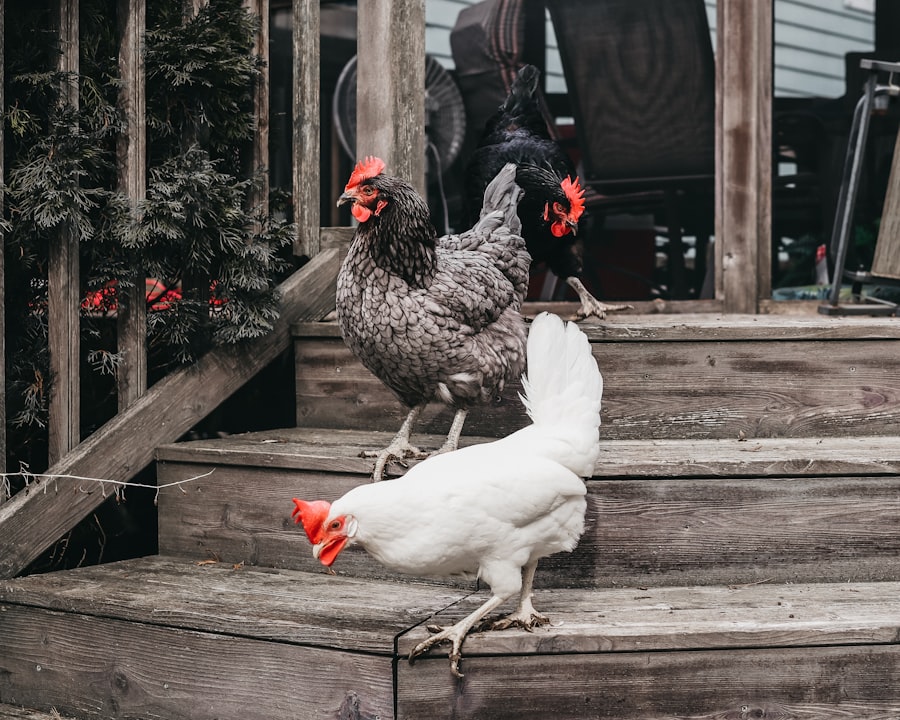
Proper nutrition is essential for keeping your backyard chickens healthy and productive. A balanced diet for chickens should include a mix of grains, protein, vitamins, and minerals. You can purchase commercial chicken feed that is specifically formulated for different stages of life, such as starter feed for chicks and layer feed for hens.
Additionally, you can supplement their diet with kitchen scraps, fruits, vegetables, and even insects. In addition to providing proper nutrition, it’s important to ensure that your chickens have access to clean water at all times. Chickens need a constant supply of fresh water to stay hydrated and healthy.
Make sure to regularly clean and refill their water containers to prevent the growth of harmful bacteria. By providing your backyard flock with a balanced diet and clean water, you can help ensure their overall health and well-being. Proper nutrition is essential for keeping your backyard chickens healthy and productive.
A balanced diet for chickens should include a mix of grains, protein, vitamins, and minerals. You can purchase commercial chicken feed that is specifically formulated for different stages of life, such as starter feed for chicks and layer feed for hens. Additionally, you can supplement their diet with kitchen scraps, fruits, vegetables, and even insects.
In addition to providing proper nutrition, it’s important to ensure that your chickens have access to clean water at all times. Chickens need a constant supply of fresh water to stay hydrated and healthy. Make sure to regularly clean and refill their water containers to prevent the growth of harmful bacteria.
By providing your backyard flock with a balanced diet and clean water, you can help ensure their overall health and well-being.
Ensuring Good Health and Hygiene
Maintaining good health and hygiene is crucial for keeping your backyard chickens happy and disease-free. Regularly inspect your chickens for signs of illness or injury, such as lethargy, abnormal droppings, or unusual behavior. If you notice any concerning symptoms, consult with a veterinarian who specializes in poultry health.
In addition to monitoring their health, it’s important to keep their living environment clean and sanitary. Regularly clean out their coop and run to remove droppings and soiled bedding. This will help prevent the buildup of harmful bacteria and parasites that can lead to illness.
Providing regular dust baths for your chickens can also help keep them clean and free from mites and lice. Maintaining good health and hygiene is crucial for keeping your backyard chickens happy and disease-free. Regularly inspect your chickens for signs of illness or injury, such as lethargy, abnormal droppings, or unusual behavior.
If you notice any concerning symptoms, consult with a veterinarian who specializes in poultry health. In addition to monitoring their health, it’s important to keep their living environment clean and sanitary. Regularly clean out their coop and run to remove droppings and soiled bedding.
This will help prevent the buildup of harmful bacteria and parasites that can lead to illness. Providing regular dust baths for your chickens can also help keep them clean and free from mites and lice.
Protecting from Predators
Protecting your backyard flock from predators is essential for their safety and well-being. Common predators that pose a threat to chickens include raccoons, foxes, hawks, and even domestic dogs or cats. To keep predators at bay, make sure that your coop and run are secure with sturdy fencing and locks on all doors.
Consider adding motion-activated lights or alarms around the perimeter of your coop to deter nocturnal predators. Additionally, providing roosting bars inside the coop can give your chickens a safe place to sleep at night away from ground-dwelling predators. By taking these precautions, you can help protect your backyard flock from potential threats.
Protecting your backyard flock from predators is essential for their safety and well-being. Common predators that pose a threat to chickens include raccoons, foxes, hawks, and even domestic dogs or cats. To keep predators at bay, make sure that your coop and run are secure with sturdy fencing and locks on all doors.
Consider adding motion-activated lights or alarms around the perimeter of your coop to deter nocturnal predators. Additionally, providing roosting bars inside the coop can give your chickens a safe place to sleep at night away from ground-dwelling predators. By taking these precautions, you can help protect your backyard flock from potential threats.
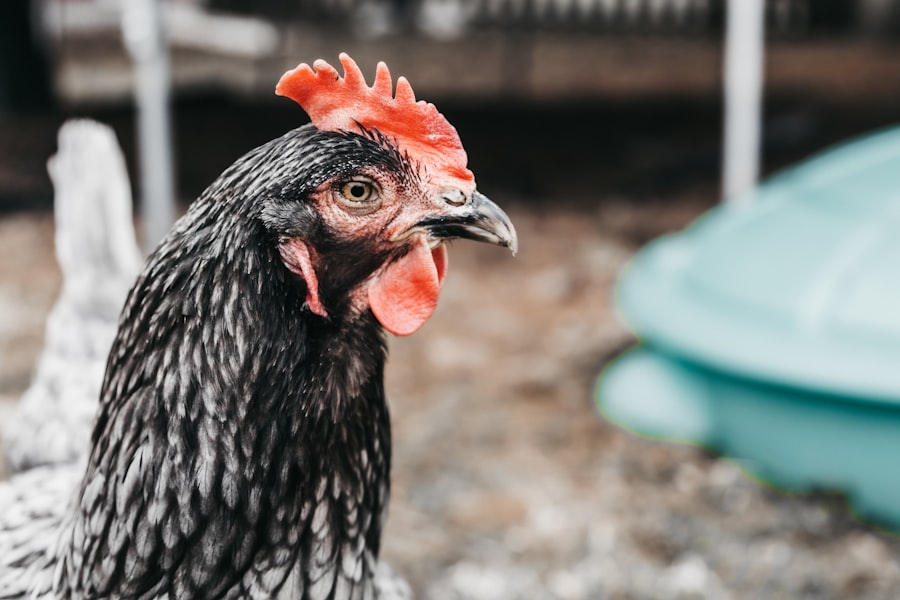
Building Trust through Gentle Handling
When handling your chickens, it’s essential to be gentle but firm, supporting their bodies with both hands to prevent injury or stress. Avoid sudden movements or loud noises that could startle them, as this can create a negative experience.
The Power of Positive Interaction
Regularly interacting with your chickens in a positive manner can help foster a trusting relationship with them. Spend time with your chickens each day, talking to them in a soothing voice and offering them treats from your hand. This will help them become more comfortable around you and less likely to become skittish or aggressive.
Creating a Lasting Bond
By consistently handling and socializing with your chickens, you can create a lasting bond with them. This bond will not only make them more friendly and tame but also make them more enjoyable to be around.
Managing Waste and Composting
Managing waste from your backyard flock is an important aspect of responsible chicken keeping. Regularly clean out their coop and run to remove droppings and soiled bedding. Instead of throwing this waste away, consider composting it to create nutrient-rich fertilizer for your garden.
To compost chicken waste effectively, mix it with other organic materials such as leaves, grass clippings, or kitchen scraps. Turn the compost pile regularly to aerate it and speed up the decomposition process. Over time, you’ll be left with rich compost that can be used to nourish your plants while reducing waste from your flock.
Managing waste from your backyard flock is an important aspect of responsible chicken keeping. Regularly clean out their coop and run to remove droppings and soiled bedding. Instead of throwing this waste away, consider composting it to create nutrient-rich fertilizer for your garden.
To compost chicken waste effectively, mix it with other organic materials such as leaves, grass clippings, or kitchen scraps. Turn the compost pile regularly to aerate it and speed up the decomposition process. Over time, you’ll be left with rich compost that can be used to nourish your plants while reducing waste from your flock.
If you’re interested in keeping chickens in your garden, you may also want to consider caring for goslings. Poultry Wizard has a helpful article on how to care for goslings, which provides valuable information on raising and nurturing these adorable baby geese. Learning about the care and feeding of goslings can be a great complement to your knowledge of keeping chickens in your garden.
FAQs
What are the benefits of keeping chickens in your garden?
Keeping chickens in your garden can provide you with a sustainable source of fresh eggs, natural pest control, and fertilizer for your garden.
What do chickens need to thrive in a garden environment?
Chickens need a secure coop for shelter, access to fresh water, a balanced diet of feed and kitchen scraps, and a designated area for dust bathing.
How much space do chickens need in a garden?
Chickens need at least 2-3 square feet of space per bird in the coop and 8-10 square feet of outdoor space per bird for foraging and exercise.
What should I consider before keeping chickens in my garden?
Before keeping chickens in your garden, consider local zoning laws, predator protection, and the time and effort required for daily care and maintenance.
How do I protect my garden from chickens?
To protect your garden from chickens, consider using fencing, raised beds, and chicken-proof barriers to keep them out of specific areas.
What are some common challenges of keeping chickens in a garden?
Common challenges of keeping chickens in a garden include managing waste, preventing damage to plants, and protecting chickens from predators.
What are some popular chicken breeds for garden environments?
Popular chicken breeds for garden environments include Rhode Island Reds, Plymouth Rocks, and Orpingtons, known for their egg production and docile nature.
Meet Walter, the feathered-friend fanatic of Florida! Nestled in the sunshine state, Walter struts through life with his feathered companions, clucking his way to happiness. With a coop that’s fancier than a five-star hotel, he’s the Don Juan of the chicken world. When he’s not teaching his hens to do the cha-cha, you’ll find him in a heated debate with his prized rooster, Sir Clucks-a-Lot. Walter’s poultry passion is no yolk; he’s the sunny-side-up guy you never knew you needed in your flock of friends!

